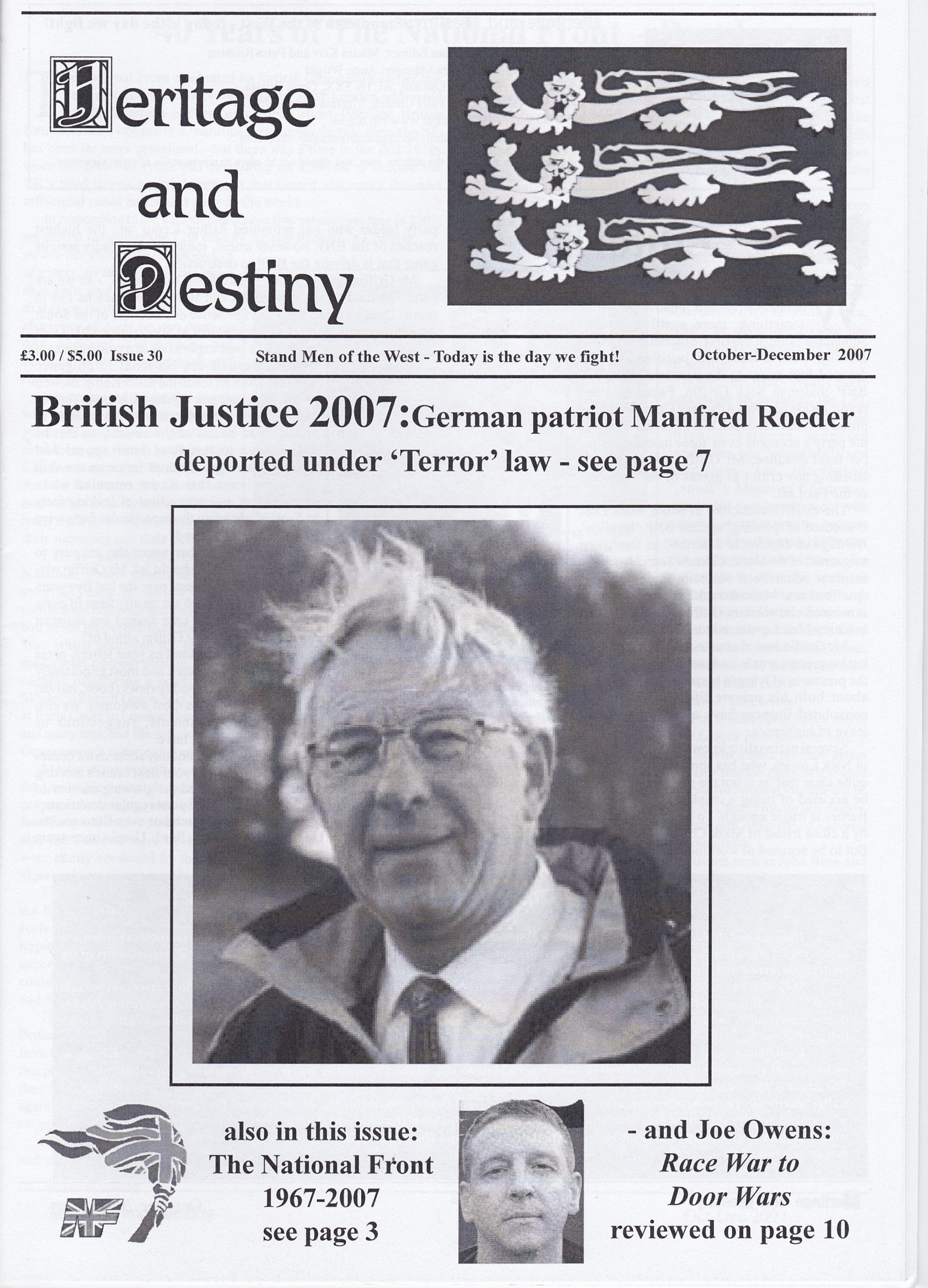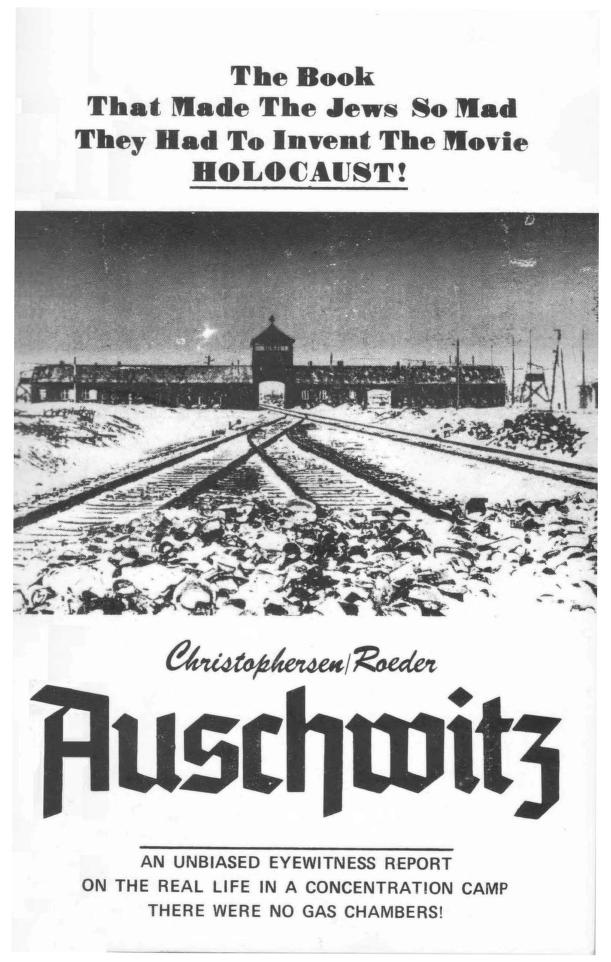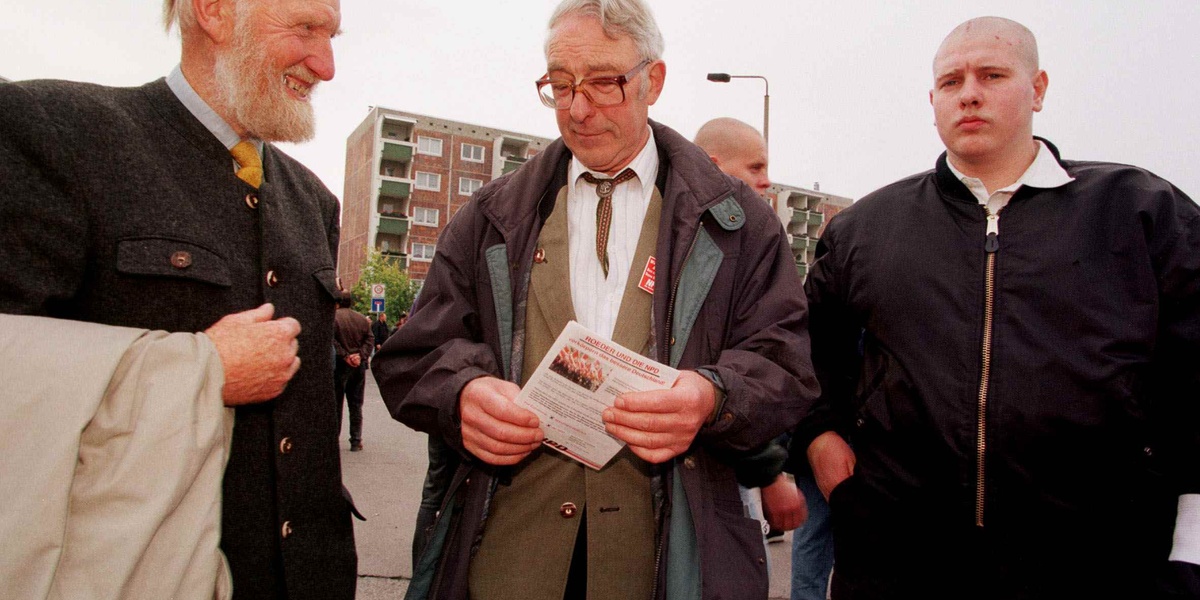The great German patriot Manfred Roeder died ten years ago today, on 30th July 2014.
Our assistant editor Peter Rushton, who knew Manfred well, wrote this obituary in Issue 62 of H&D. Manfred was also featured on the front cover of Issue 30 after he was denied entry to the UK on the orders of the Home Secretary.
Here is the text of the obituary which we published almost a decade ago:
Manfred Roeder, one of Europe’s most courageous postwar nationalists, died on 30th July 2014 aged 85. Born in Berlin and educated at one of the elite Napola schools created under national socialism, Roeder fought as a 16-year-old in defence of his home city against Stalin’s invading Red Army. He devoted the rest of his life to the defence of divided Germany’s honour and territorial integrity.
After qualifying as a lawyer Roeder set up practice in Bensheim, in the central German state of Hesse, and worked alongside conservative and church groups in anti-communist campaigns during the 1960s. At the start of the 1970s he organised very successful nationwide campaigns against the tide of pornography promoted by the anti-German ‘1968 generation’. These campaigns became the basis for a network of German patriots – the German Citizens’ Initiative.
In 1973 Roeder’s political activity took a radical turn when he wrote a preface to one of the first historical revisionist texts, The Auschwitz Lie, by Wehrmacht veteran Thies Christophersen who had been based near the alleged death camp. Many of Roeder’s anti-communist and Christian allies were too frightened to join Roeder in campaigning for historical truth and justice, but he explained that after 1945, “German jurisdiction and search for truth was made impossible. Only the victors were to sit in judgment and to write history.”
As part of the fightback against this injustice Roeder was appointed by the last leader of the Third Reich – Admiral Karl Doenitz – as legal adviser to the continuing, suppressed Reich. After Doenitz died in 1980, Manfred Roeder became ‘Regent’ or Reichsverweser pending the restoration of Germany’s legitimate constitution. He had purchased a Kaiserreich era hotel in the Hessen countryside, which was used as a centre for nationalist and cultural events. (I first visited Manfred at this house in 1993.)
After a demonstration at Flensburg on the north German coast, Roeder was given a six-month prison sentence and barred from practising law, but was supported by a network of nationalist comrades in the USA and worldwide. He toured the USA inspiring ethnic Germans and other European-Americans to build activist networks, but the most controversial period of his career began on his return to Germany in 1980.
A small offshoot from Roeder’s Citizens’ Initiative – calling themselves the ‘German Action Groups’ – began a bombing campaign against political targets linked to the continuing oppression of the German people.
After the bombing of an asylum centre in Hamburg caused the deaths of two Vietnamese refugees, the culprits telephoned Roeder asking for legal advice while on the run. Thus the authorities were able to build a credible ‘conspiracy’ case against him, and in 1982 he was sentenced to thirteen years in prison. Released in 1990 he resumed his political career and was invited to address the BNP’s annual rally in October that year, but was banned from the UK at the instigation of leading Zionist and Labour MP Greville Janner.
Roeder was again refused entry to the UK in 2007 and faced continuing legal persecution until well into his ninth decade.
In 1998 Manfred Roeder was a parliamentary candidate for the NPD and featured in a BBC documentary film.
During the 1990s one of his main activities was to promote the return of ethnic Germans to areas of East Prussia taken over by Stalin after 1945, including the Baltic city of Königsberg (presently under Russian occupation, and which the present author visited as part of this initiative). This campaign caused a political scandal in Germany a few years later, when it was admitted that Roeder had lectured at an official military academy in 1995 at the Bundeswehr‘s invitation.
In 2006 Manfred Roeder visited Tokyo and published a joint manifesto with Japanese nationalist leader Ryu Ohta, but soon afterwards his health began to decline (exacerbated by a severe blow to the head inflicted by ‘anti-fascists’ armed with clubs who attacked a demonstration in Marburg), and in recent years he had retired from active politics.
Manfred Roeder deserves to be remembered as a giant of European nationalism.



